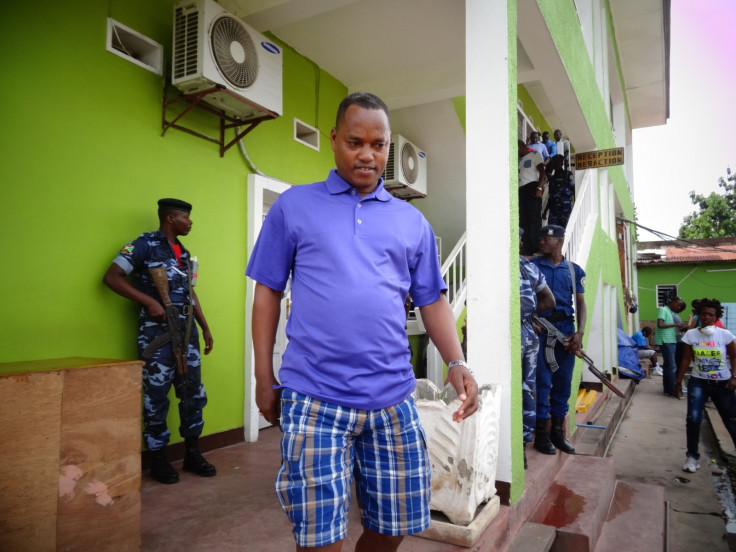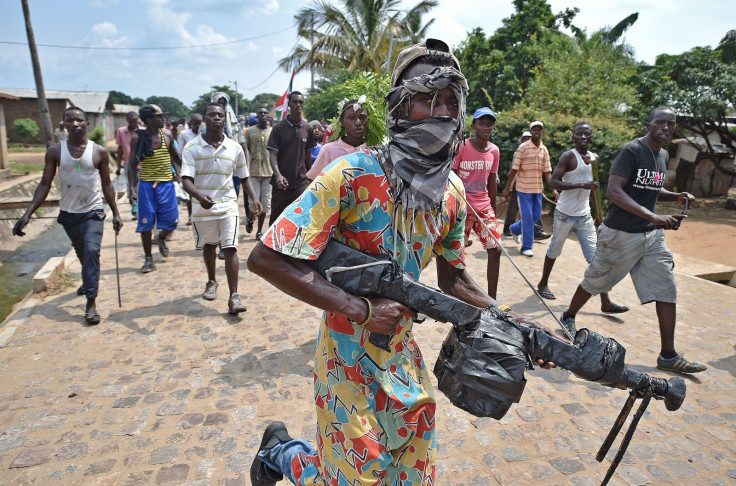Burundi: Minister of home affairs threatens to 'slam the door' at political dialogue meeting

Edouard Nduwimana, Burundi's minister of home affairs, "nearly slammed the door" during a political dialogue meeting in Bujumbura as he complained about a participant who had described the youth wing of the country's ruling National Council for the Defense of Democracy (CNDD-FDD) party as a militia.
The government failed to turn up during the first day of meetings on Tuesday (23 June), saying the upcoming parliamentary elections were its main priority, but Nduwimana attended the second round of talks on Wednesday (24 June).
The atmosphere during the meeting was described as "good" by people present but sources told IBTimes UK of the minister's frustrations at the "Imbonerakure militia" outburst.
"This comment certainly didn't justify him nearly walking out because everyone knows it's an armed militia – even the United Nations qualify them as a militia. He [the minister] can describe us as insurgents, but we cannot call the CNDD-FDD's youth wing as a militia?" Agathon Rwasa, leader of the National Liberation Forces (Forces pour la Libération Nationale, FNL) and participant in the talks, told IBTimes UK.
Frederic Banvuginyunvira is the vice-president of opposition party Front for Democracy in Burundi (known by its French acronym Frodebu). He was present at the meeting and told IBTimes UK: "He didn't slam the door but he got up and tried to leave just after we said that the government has a militia. He couldn't like what we said. The minister then denied the government has a militia and that was just malicious fabrications. But he calmed down afterwards."
Need for dialogue
Demonstrations started in the East African nation when President Pierre Nkurunziza declared his intention to stand for a third term in the upcoming 26 June elections, which the opposition claims is unconstitutional. However, his supporters argue that the president's first term should be discounted as it was chosen by the parliament rather than via election.
The international community called for the opposing sides to resume political dialogue after almost two months of street violence.
It is estimated that more than 80 people have died and about 150,000 civilians have sought refuge in neighbouring countries since the start of the violence on 26 April, when the CNDD-FDD nominated Nkurunziza to stand for re-election.

A source present at the United Nations Electoral Observation Mission in Burundi (MENUB), where the meeting took place, told IBTimes UK the minister insisted the government would not postpone the controversial legislative and presidential elections, due to take place on 29 June and 15 July, respectively.
"Apparently, the president's agenda is to make sure we don't reach a compromise before the elections. If there is no dialogue even after the elections, there is no hope at all," Rwasa said. "The issue is that the interior minister [minister of home affairs] is talking about theories that hold no water, such as the fact that those who want to create a dialogue or a transition are putschists."
The opposition condemned the minister's view, saying it believed in "democratic ideals".
"All that we want is a dialogue, and that through this dialogue, we can improve the process. If the international community has sent a team of facilitators, that means there is a crisis, but the government has been minimising this political conflict," Rwasa explained.
Whether the opposition and the government manage to find a compromise before the elections on Monday 29 June will depend on "how strictly the international community will act to ensure the government understands that we need to go through the dialogue route", he added.
'High-quality facilitators'
Representatives of opposition parties – including UPD Zigamibanga, Frodebu, Ikibiri, RENAC, MSD and PSD, civil society such as Aprodh, were present at the meeting.
They were sat alongside the Catholic church, which was represented by the Archbishop of Bujumbura, the national board of Burundi's churches – the Protestant church's umbrella body – as well as former heads of state.
Facilitators included the African Union, the United Nations, the general secretary of the International Conference on the Great Lakes Region and the East African Community.
"There was a sufficient number of people and witnesses," Rwasa said. "From my point of view, the facilitating team is of high quality. Their advice helps because the sticking points cannot remain sticking points."
IBTimes UK contacted Nduwimana but he was not available for comment.
© Copyright IBTimes 2025. All rights reserved.






















